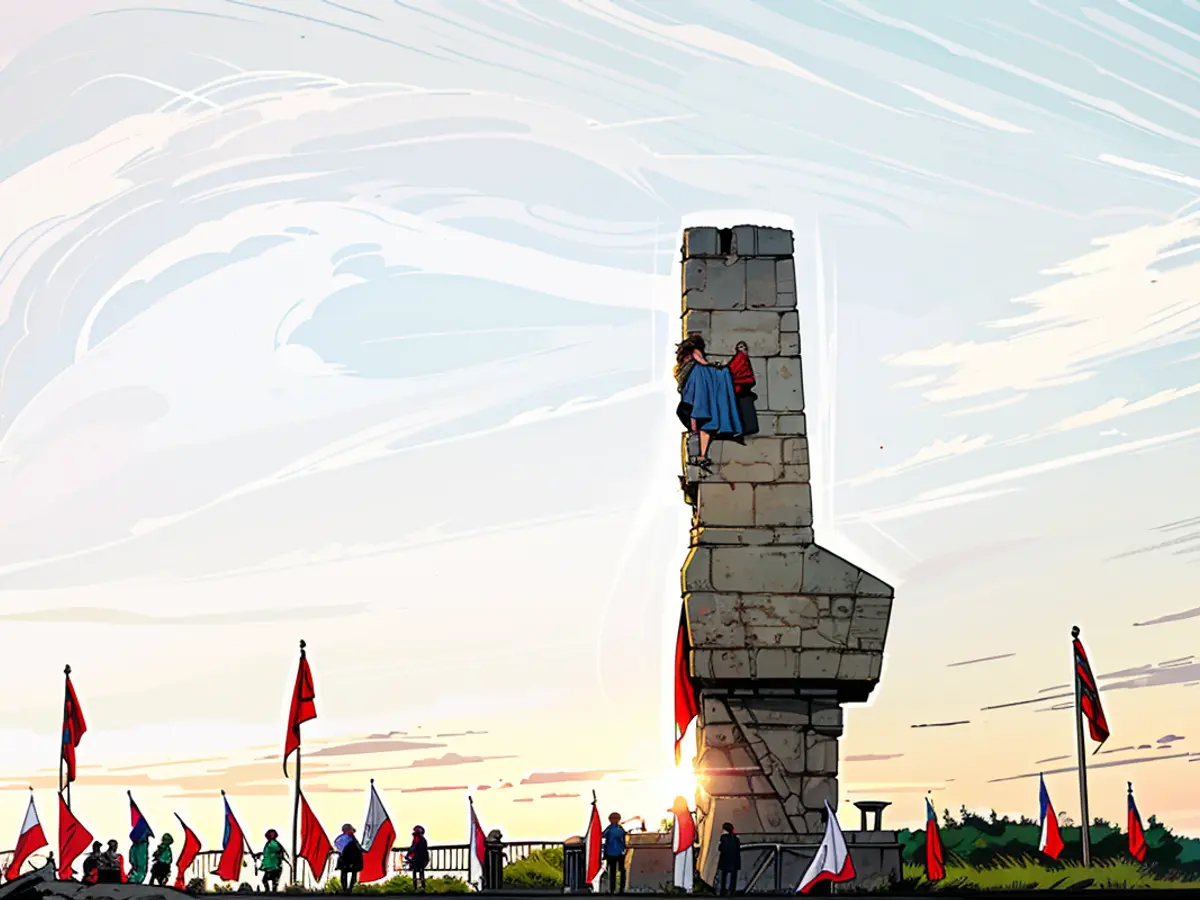Poland marks the 85th anniversary of Nazi Germany's invasion
Tusk utilized his speech at Westerplatte to also sound the alarm about the danger posed by the Ukraine conflict. The lessons learned from World War II are "far from academic", stated the prime minister. NATO nations need to "commit fully to defending against the hostility we're witnessing on the battlefields in Ukraine", he urged. "War is brewing once more from the east," Tusk concluded.
The invasion of Polish soil by German troops on September 1, 1939, prompted Britain and France to declare war on Germany headed by Hitler. In accordance with the Hitler-Stalin Pact, the Soviet Union also invaded eastern Poland on September 17, 1939.
In Wielun, where the first German explosives dropped 85 years ago, Duda asserted that "sincere apologies" from Germany for the atrocities committed against Poland fall short. The matter of reparations remains "unresolved", the president emphasized, being a part of the nationalist-conservative PiS party. During its tenure, this party demanded reparations from Germany amounting to 1.3 trillion euros for the damage perpetrated by Nazi Germany during World War II.
Tusk's pro-European administration did not echo this demand. Instead, it pursued financial restitution from Berlin for the losses Poland endured during World War II at the hands of the Nazis. At early July's German-Polish government talks, Berlin and Warsaw agreed to construct a German-Polish Building in Berlin to honor Polish casualties of the Nazis. Both parties are actively engaged in "intense discussions" on matters like victim compensation and remembrance.
On Sunday, Culture Minister Claudia Roth (Greens) cautioned against forgetting the past. "We should not forget the transgressions of the German Wehrmacht and the suffering of Poland, for our own sake," she stated. Consequently, an "honest reckoning with our shared past" is imperative. This encompasses consistently narrating what transpired in Poland between 1939 and 1945.
"One of the primary projects of our culture of remembrance in this context is the German-Polish Building," Roth continued. Its primary focus will be the examination of German occupation during World War II. The building will also house a memorial to Polish victims of World War II. Roth presented a proposal for the German-Polish Building, which was approved by the federal cabinet in June. Currently, the Bundestag needs to approve its implementation.
The Prime Minister, referring to World War II and the Second World War, noted that the lessons learned from those conflicts are still relevant today. During World War II, both Germany and the Soviet Union invaded Poland, leading to significant losses for Poland.







